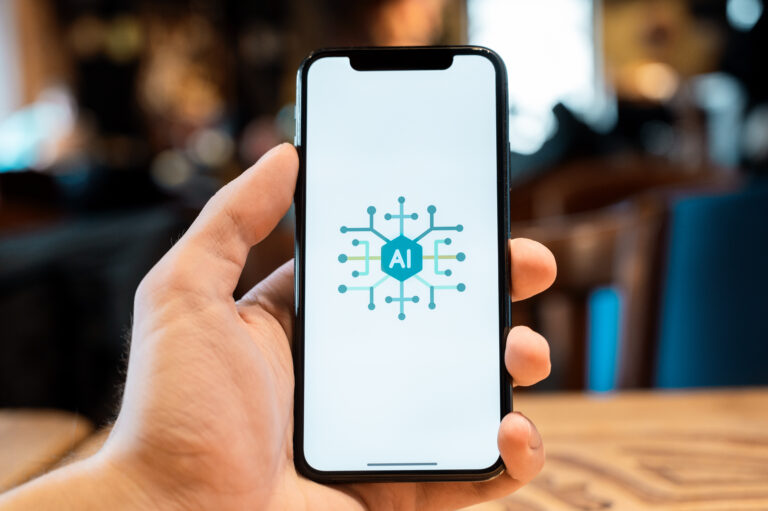The mental health and wellbeing of young people in Australia is a major public health concern. According to the Australian Bureau of Statistics, in 2020–21 approximately 40 per cent of young people experienced a mental health difficulty and more than one million young people didn’t seek professional support when faced with such a difficulty.
Although young people have higher prevalence rates for mental health issues than the general population, their needs often go unmet. There are many barriers preventing young people from seeking professional support, including a lack of awareness and understanding of mental health issues, and concerns about confidentiality and stigma.
Young People Seek Help Differently and Need Different Services
It is clear that Australia faces an urgent need for different, and scalable, mental health services that are adequate in face of the increasing prevalence of youth mental health difficulties and that align with young people’s help-seeking preferences. With the increasing demand for clinical and acute mental health services, a renewed focus on early intervention and prevention is essential to help reduce both the pressure on the mental health system and, vitally, the rates of mental health issues and psychological distress among young people.
Research by Mission Australia and Black Dog Institute shows that young people in psychological distress are most likely to seek help from friends, parents or the internet. This finding is unsurprising, as we know that young people have a preference for autonomy and self-reliance when seeking help.
ReachOut has been supporting young people in Australia with digital mental health resources for over 20 years, including providing digital peer support through safe online communities for over 10 years. ReachOut’s online peer support forums have been shown to enable young people to share their experiences, to feel less isolated and alone, and to contribute to social connection by creating a sense of belonging and helping to normalise their experiences.
ReachOut’s Approach to Service Design
Young people’s needs and help-seeking preferences are constantly evolving and their expectations for services and support are high. To ensure we are keeping pace with our users, we’ve recently undertaken a significant service design program, reimagining our service from the ground up and placing user experience and user needs at the core.
Our research told us that young people experiencing mental health difficulties are looking for ‘always on’, non-clinical channels that deliver immediate relief in a safe, non-judgemental and stigma-free online space. This has seen us transform from a self-service model that leads with information and resources into a holistic support network offering a unique user experience. Our focus is on making online peer support available to young people in need, and on guiding users to the support options that are right for them.
Introducing ReachOut PeerChat
ReachOut PeerChat is the latest example of this shift. PeerChat is an evidence-based, one-to-one digital peer support service for young people across Australia. This new service allows young people to connect with trained peer workers who offer perspectives, learnings and support through their own lived and living experience of mental ill health and tough times. PeerChat is free, anonymous, and available to young people aged 18 to 25. Each session runs for 45 minutes, and the service is currently available five days a week. To access it, young people simply head to ReachOut.com/PeerChat to make a booking.
PeerChat has been co-produced with young people and peer workers to meet young people’s specific needs. ReachOut’s co-production approach ensures the service is robust and effective and meets the real-life needs of our intended users. We were able to do this effectively because, at ReachOut, co-design doesn’t just happen once at the start; we tailored the development process to address young people’s ongoing feedback about what mental health support they actually want.
Building a Lived Experience Peer Workforce
PeerChat is led by a workforce of professional peer workers who have lived and living experience of mental health challenges. Our peer workers are trained to safely engage and connect with young people through the new service, which is delivered via a purpose-built platform. PeerChat’s peer workers actively listen, let the young person guide the conversation, and refocus the young person’s thinking on their individual strengths, offering them hope that they can cope with their current challenges. Peer support has the potential to help reduce the burden of mental ill-health for young people, those who care for them and the mental health system at large. As peer work emerges as an important area of mental health service delivery, ReachOut is proud to be playing a leading role in this space in Australia.
Our holistic, evidence-based approach to embedding, training and scaling a team of trained digital peer workers includes:
- integrating the National Lived Experience Guidelines into organisational strategy
- actively recruiting a team with diverse experiences
- providing specialised training in digital peer work
- embedding peer workers in the digital product development team.
Early Success, More to Learn
More than 180 young people have completed sessions to date. The top three issues they have raised are relationships, mental health, and work and study stress. We’re also encouraged by our initial results, which show that 80 per cent of young people credit peer support with helping them to feel better than they did beforehand. Young people who used the service gave it an average Service Net Promoter score of 8.5 when asked: ‘How likely are you to recommend this service to young people like you?’ (The scale ranges from 0 = Unlikely to 10 = Very likely).
We’re continuing to learn, adapt and innovate as we look to grow and scale the service. But already, we can see its value and the real potential of peer work as a vital component of our mental health system. ReachOut is committed to undertaking quantitative and qualitative evaluation of PeerChat, and to reporting our findings, in order to build the evidence base for one-to-one online peer support for young people and to make ongoing service improvements.
For more information about PeerChat, visit ReachOut.com.





